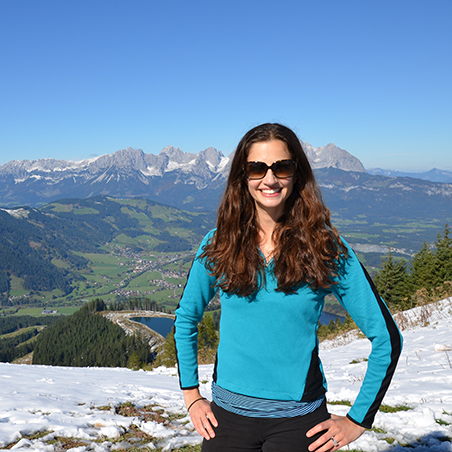Lisa Crystal
Management Consultant, McKinsey & Company, New York City
Bachelor of Arts (Hons), Contemporary Studies and Physics, 2007
King’s helped me think about science through a different lens.
Lisa Crystal makes no bones about who her favourite physicist is.
“Albert Einstein,” she says without hesitation, adding that she wrote her thesis in her final year in the Contemporary Studies Program (CSP) on Einstein.
“I was always interested in physics, even in high school,” Lisa explains. “It came from a curiosity about how the world works. I got really intrigued by some of the mind-bending philosophical questions that come out of physics. But I came to King’s because I also loved the humanities. I did the Foundation Year Program (FYP) and it was completely eye opening, including reading primary sources written by scientists. I connected what we were learning in FYP with what I was learning in my physics classes. King’s helped me think about science through a different lens.”
After King’s, Lisa enrolled directly into a PhD program at Harvard, studying the history of science. “It felt like an extension of my time at King’s,” she says. Her doctoral thesis examined how physicists, including Einstein, understood concepts of time during the 20th century.
“I spent a lot of time in the archives reading letters and papers written by physicists and trying to make sense of the implications, for physics and for philosophy. I couldn’t have done that without what I learned at King’s and Dalhousie.”
But there was something missing as she toiled away on her dissertation. She found it a lonely pursuit.
“I missed the kind of community that I felt at King’s,” she says. “I missed the constant conversations and the collaboration.”
As it turns out it wouldn’t be long before she found that “kind of community” again. Friends pointed her towards the recruiters from McKinsey & Company, one of the top management consulting firms in the world. She joined a group of consultants that include people with a business background, as well as academics, doctors, lawyers, and data scientists among others.
“Now I am part of the healthcare analytics group at McKinsey. I work with large healthcare data sets and help analyze the data to generate insights for my clients […] I work with large and small organizations to help them achieve their goals, improve their performance, and further their missions. My primary focus is on healthcare organizations that work with vulnerable populations and those with special needs.”
It may seem like a huge departure from what she studied at school. “I don’t do a lot of physics in my job,” Lisa says, but the same attributes that stood her well in her undergrad and PhD programs continue to be useful in breaking down large quantities of data and translating that into useful insights for her clients.
“Critical thinking from CSP, as well as the intellectual curiosity that was nurtured at King’s, helped form me as a thinker and helps me do my job,” she says.
Einstein once said, “The important thing is not to stop questioning. Curiosity has its own reason for existing.” It’s a lesson Lisa uses every day.
